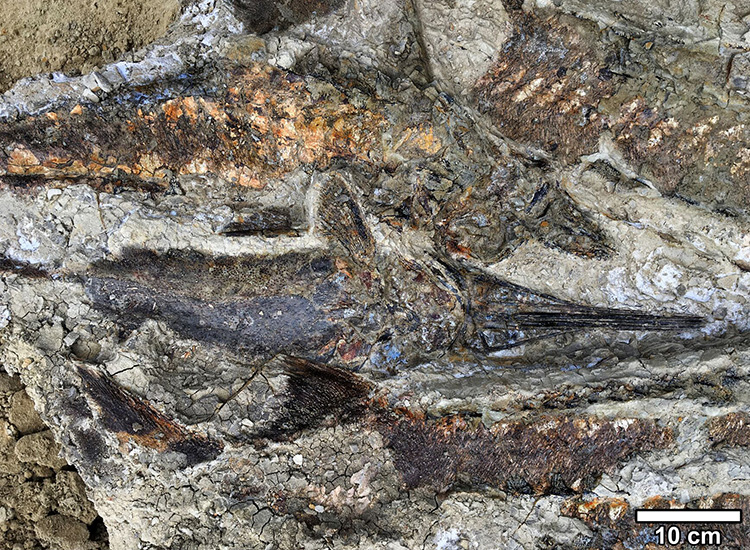Scientists say they have deposits formed hours after dino-killing impact

Enlarge / A pile of fish trapped in the flood deposits. (credit: UC Berkeley)
The Chicxulub impact is famed for having killed the dinosaurs and most other species alive on Earth at the time, and it left behind a thin layer of dust rich in rare elements. Modeling of the impact has suggested almost too many ways it could have killed: massive tsunamis, a magnitude 11 earthquake, global wildfires and searing heat, months of frigid darkness, acid rain, a massive surge of carbon dioxide, and more. While we've had confirmation that some of these events occurred, we don't have a strong sense of their impact because we haven't found fossils that tell us much about what happened to the ecosystems of the time.
That may have changed, according to a report in PNAS. The paper describes a large deposit residing just under the iridium-rich dust that marks the impact, apparently formed while heavier debris was still falling from the sky. The site, in western North Dakota, contains a mix of fresh and saltwater species, and it seems to have formed when water rushed ashore from what was then a nearby ocean.
On the edge of your seaAt the time of the Chicxulub impact, the Earth looked very different. A long-running hothouse period had likely left the planet without any significant polar ice, meaning extremely high ocean levels. A large area of the US Midwest was underwater as an arm of the oceans formed the Western Interior Seaway, extending from the antecedent of the Gulf of Mexico up to roughly the Canadian border. Its western shores were dotted with valleys cut by rivers that flowed to the nearby ocean.
Read 18 remaining paragraphs | Comments